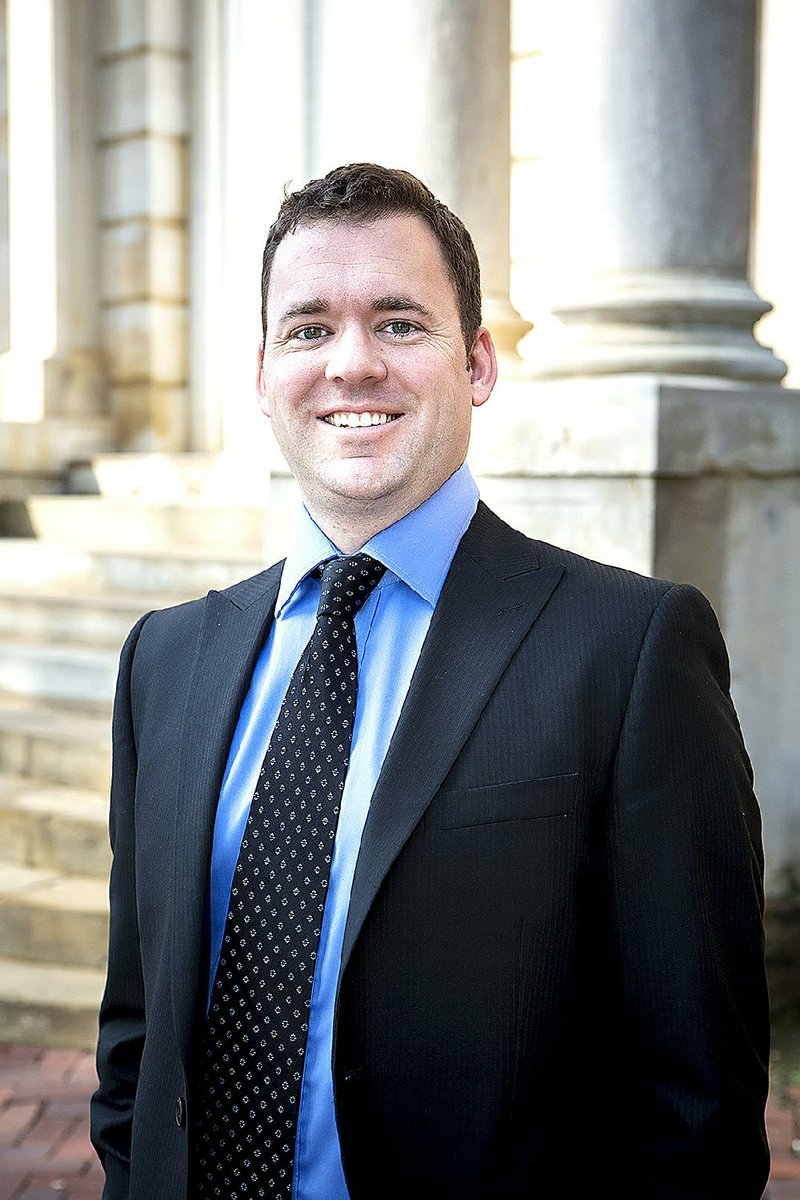FAYETTEVILLE -- As part of his old job as a college adviser, Trevor Francis sometimes spoke on the phone with students dropping out of school.
When asked why they were leaving, "a lot of times, the standard answer that I would get in talking to students is that it was 'personal,'" Francis said.
He now oversees the new Office of Graduation and Retention at the University of Arkansas at Fayetteville, taking on his role in September and meeting with faculty members and administrators to brainstorm ideas to improve the university's 62.3 percent six-year graduation rate.
Francis, who earns a yearly salary of $88,000, began working at the university as an academic adviser in 2004. When it comes to leaving school, student experiences "are so unique and so complex that, at any given time, it can be for a number of reasons," he said.
A holder of three UA degrees, Francis won awards and promotions in his career leading up to his current position. He brings familiarity with the university to the task of meeting goals that have become highly public priorities.
Under Chancellor G. David Gearhart, who is set to retire in July, the university set a goal to improve its six-year graduation rate to 66 percent by next year and to 70 percent by 2021, the university's 150th anniversary.
"I think those both have been terrific aspirational goals," Francis said. "I think they're exactly something to aspire for. I think that we'll evaluate each year where we're at and what's sort of realistic, but then also what the stretch goal should be."
Francis' position and the creation of his office were included in a plan submitted by UA to the Higher Learning Commission. The plan details specific steps to be taken from 2014 through 2017 to help improve student graduation rates.
"I'm held accountable by what we implement off of that plan," Francis said.
Main goals listed in the plan include improved technology integration in supporting students and more focused help for students at critical points in their academic careers.
Francis frequently used the term "intervention" to describe ways the university can do more to help specific groups of students, like those who have yet to declare a major or first-generation college students.
"Anytime I talk about an intervention, I usually have students that I'm thinking about that this would directly impact," Francis said.
His office includes an analyst able to crunch the numbers for academic departments and present reports in an understandable format, Francis said.
Much of his time has involved meeting with leaders of academic units about ways to improve student outcomes.
"Each unit on campus submitted a retention plan this past fall," Francis said. "And so when we've met with the different colleges, it's been to focus on what is their unique retention plan and how can we help them take the proper steps to make it a reality."
Yvette Murphy-Erby, associate dean for UA's J. William Fulbright College of Arts and Sciences, praised Francis for having "a good understanding of what's happening nationally."
"He's really thought critically about what we can do in these areas," Murphy-Erby said. The Fulbright College plans to begin a new program bringing faculty in various departments into newly created strategic roles. These faculty members will help develop department-specific strategies to keep students in school.
Francis described himself as a consultant working with various academic units.
"In some cases, some of these offices just have so much going on, I can come in and offer advice and sort of help them compare and contrast what best practices are at other institutions and what seems to be working there," Francis said.
Short-term plans include hiring a specialist to help train more faculty to use a computer program known as UA Success. The university is entering its final year of a contract with the program provider, but the program still has untapped potential to help faculty members and students communicate, Francis said.
He said he's looking to formalize a partnership with a faculty member to help first-generation college students.
"Typically, historically, 25 percent of our incoming class are first-generation students," Francis said.
With both Gearhart and Provost Sharon Gaber departing UA, Francis said he's excited to work with their replacements. The university will continue to examine student data to help guide its resources, Francis said, describing data analysis as still a work in progress.
"We've had some faculty involved with helping us develop a plan for taking a look at that data," Francis said, adding, "there's a lot of promise with that."
Metro on 05/17/2015

